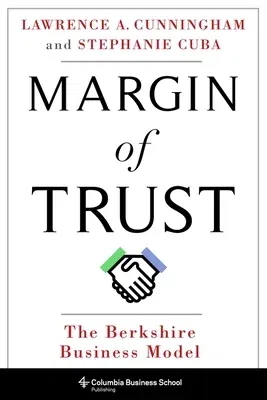Lawrence Cunningham
(Author)Margin of Trust: The Berkshire Business ModelHardcover, 14 January 2020

Qty
1
Turbo
Ships in 2 - 3 days
In Stock
Free Delivery
Cash on Delivery
15 Days
Free Returns
Secure Checkout

Part of Series
Columbia Business School Publishing
Print Length
184 pages
Language
English
Publisher
Columbia Business School Publishing
Date Published
14 Jan 2020
ISBN-10
0231193904
ISBN-13
9780231193900
Description
Product Details
Book Format:
Hardcover
Country of Origin:
US
Date Published:
14 January 2020
Dimensions:
23.11 x
15.75 x
2.54 cm
ISBN-10:
0231193904
ISBN-13:
9780231193900
Language:
English
Location:
New York
Pages:
184
Publisher:
Weight:
430.91 gm